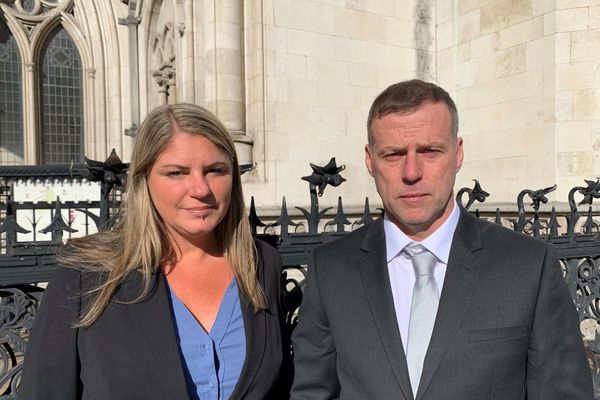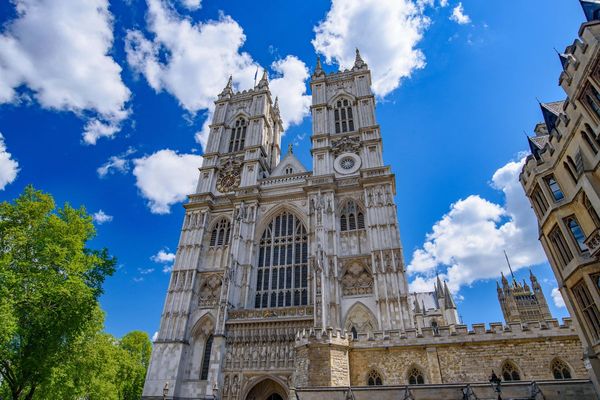London’s Metropolitan police were keen to portray the coronation of King Charles III as a once in a generation event justifying the pre-emptive, early morning arrests they made across London. It was also a once in a lifetime event for the 64 mostly republican protesters who were arrested on coronation day.
The police have issued a statement regarding the arrest of Graham Smith, the head of anti-monarchy group Republic and five others, who were released after about 18 hours in custody. The police expressed regret not explicitly for arresting them, but that they were “unable to join the wider group of protesters” elsewhere.
The group of six were arrested a few hours before the coronation, as they loaded placards onto a van on St Martin’s Lane, close to where the main Republic protest was planned. The Met has indicated that the arrests were for possessing equipment that could be used to “lock on”, contrary to the Public Order Act, which received royal assent only a couple of days before.
These arrests confirm the fears of vagueness and breadth, expressed by legal scholars, activists and parliament’s own joint committee on human rights, when it comes to the new law.
The offence of locking on was introduced in the act, which very broadly defined it as attaching yourself to others, objects or buildings to cause serious disruption. It can be committed no matter how transient the attachment, and simply by linking arms.
No equipment is needed, though in the case of the coronation, the police claimed that luggage straps could be used. Be wary of wearing lace-up shoes to a protest as you risk arrest if the police suspect you intend serious disruption.
Of the dozens of others arrested on the day, the Met police said that arrests included to prevent breach of the peace and conspiracy to cause a public nuisance. Breach of the peace was called upon at last year’s “Not my king” protests at the time of the queen’s death.
Public nuisance was recently codified (from the common law) in the Police, Crime, Sentencing and Courts Act 2022. Conspiracy punishes Person A who agrees with Person B to commit a future offence – not the substantive crime. It can be committed even if the actual crime is impossible.
A conspiracy charge is a longstanding part of the police armoury, often used to deal with environmental activists such as those M25 protesters last November or the Extinction Rebellion “uprising” demonstration.
The right to protest
In UK domestic law, the right to protest is guaranteed in the Human Rights Act 1998, which protects the right to peaceful assembly and freedom of expression. An important legal principle when considering how, when and where people should be able to protest is that limited forms of disruptive protest are still protected by law.
We know this from multiple cases tried at the European Court of Human Rights, but most importantly from the 2021 UK Supreme Court decision involving a group of protesters who formed a blockade outside of an arms convention, and were charged with obstruction.
The court held that an intentionally disruptive protest could constitute a “reasonable excuse” in law, and thus be protected – disruption does not mean protesters automatically lose their rights. While recent cases, such as a ruling that protects “safe access zones” outside of abortion clinics in Northern Ireland chip away at this, my view is that this assertion of legal principle holds good.
The key, as it is in so many human rights cases, is whether an arrest and charge are a proportionate response. Have the police properly balanced the competing rights and interests?
For now, we need simply to understand that the court identified various factors that would tip the scales one way or another when undertaking that proportionality assessment. Critical here are “the importance of the precise location to the protesters” and the fact that protesters’ views are on “very important issues” – both obviously in play in the coronation arrests.
At least one legal commentator has urged that protesters should have done so “in Bristol or Manchester” not in London, on the day of the coronation. This would be a worrying portent. Should protesters against a political party deliberately eschew its conference city?
Chilling effects
The arrests and subsequent release tell us much about the state of policing of protest in the UK today. Many senior retired officers, now free to speak out, were very concerned at the direction of travel in the new public order law.
There are also real concerns about police use of social media to spread (intentionally or not) mixed messages about their powers and the law. Ahead of the coronation, the Met confirmed it would not stop anti-monarchy protests unless they caused serious disruption. On the same day, it also asserted a low tolerance for disruption. The result is likely confusion and a future chill, as a misinformed public decides not to risk it.
Equally worrying is that the arrests came after republican protesters liaised with officers during the planning process. The view that negotiations with police are far more about intel-building than anything else gains greater traction.
The events highlight the near total ineffectiveness of any form of timely review or control. For monarchists and republicans alike, a coronation is indeed a very rare opportunity to celebrate or protest the monarchy in action.
Being released hours later with an apology, or having a court case in months to come is simply of no value to those who wanted to oppose this once in a lifetime happening as it played out. But as David Byrne goes on to remind us, “same as it ever was” – in music, as in policing.
David Mead is a member of the Labour Party, the UCU, the Society of Labour Lawyers, and Netpol Lawyers
This article was originally published on The Conversation. Read the original article.







